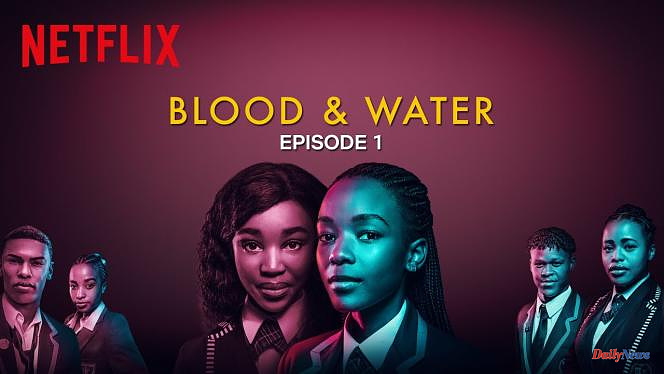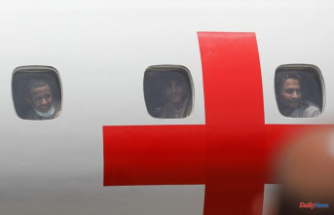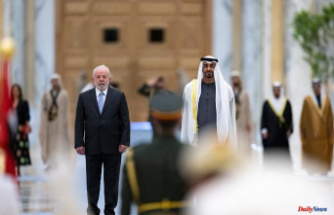A film that will "mark the beginning of a new era in storytelling" by showcasing "all the power of Nigerian and African voices". For Prime Video, the Amazon group's video-on-demand service, superlatives were in order when announcing the April 7 release of the platform's first original African film, Gangs of Lagos. This thriller directed by Nigerian Jadesola Osiberu demonstrates "our continued commitment to the local television and film industry", insisted Ned Mitchell, head of original programs for Africa and the Middle East at Prime Video. .
Like Gangs of Lagos, "African stories", available in films, series or shows, are flourishing on video-on-demand (VOD) platforms. An offer aimed at winning over new subscribers as Africa, with its rapidly growing population and increasingly connected to the Internet, is emerging as a new battleground for the streaming giants. “Their traditional markets in North America or Europe are saturated. Conversely, Africa is still untapped,” says South African media consultant Sipho Fakela.
"Subscription service penetration in Africa averaged just over 2% of households in 2022, compared to 71% in North America and 52% in Western Europe, providing room for expansion important if broadcasters are able to adapt their strategies to the African market,” adds Sam Young, an analyst with London-based research firm Ampere Analysis. According to this firm, the African VOD market should reach 12.8 million subscribers by the end of 2027, generating more than a billion dollars in revenue, three times more than in 2022.
Local content
In addition to Amazon and especially Netflix, which has been deployed in Africa since 2016, Disney has launched in South Africa and several North African countries in 2022. The world leaders face competition from the South African Showmax, owned the Multichoice group, present in some forty African countries, or even Canal and its MyCanal platform, very developed in French-speaking Africa. Actors who have been betting for years on African production.
Because local content is one of the sinews of war. Over the past fifteen months, Prime Video has signed multi-year licensing agreements with Nigerian studios Inkblot and Anthill, betting on the vitality of the local film industry, Nollywood, to expand its catalog. Amazon's service is following in the footsteps of Netflix, which has been multiplying partnerships with African production companies and filmmakers for three years and has, according to some estimates, between 2.5 and 3 million subscribers on the continent. .
After the success of the South African series Queen Sono and Blood and water, the group also bet on reality TV with Young, Famous and African which stages, in Johannesburg (South Africa) African stars, their private jets, their love stories and their extravagant outfits. In recent months, subscribers have been able to watch The King's Horseman, a film adaptation of Nigerian writer Wole Soyinka's novel Death and the King's Equerry, among others; season 2 of the South African series Kings of Jo'burg; or Anikulapo, a fantasy drama by Nigerian director Kunle Afolayan. And, as part of a partnership with Unesco, Netflix is broadcasting from March 29 eight short films imagined by young screenwriters from Mauritania, Tanzania, Nigeria, Kenya, Uganda and Africa. from South.
"Their Own Stories"
"This is important because Africans have been waiting for a long time to see their own stories told by Africans and shown on screen," says Sipho Fakela. Ampere Analysis comes to the same conclusion: in a survey conducted in the first quarter of 2023 in South Africa, "more than half of subscribers to a video-on-demand service indicated that they had chosen a service because they found the best local TV shows there," says analyst Sam Young.
“The dilemma is to increase quality without ever losing sight of the African public. He wants to see programs that look like him,” said Fabrice Faux, director of programs at Canal International. To develop its local content, the French audiovisual group notably acquired the Nigerian studio ROK in 2019 as well as the Rwandan company Zacu Entertainment in 2022, and set up the production company Plan A in Côte d'Ivoire. More than 2,000 hours of series are broadcast each year on its various channels and platform, some in vernacular languages, and all resolutely aimed at viewers on the continent. Conversely, Netflix's African blockbusters, whose plans and production often meet American standards, also aim to attract subscribers in the United States or Europe.
In order to resist growing competition, Showmax announced a partnership with NBCUniversal and Sky, a subsidiary of the cable operator Comcast, in early March. For the South African, the challenge is not to enlarge an already significant local content portfolio, but on the contrary to be able to offer more fiction and international programs.
Offline viewing
However, the catalog of programs is not enough to find a place in a market where there are many obstacles. The cost of subscriptions is also crucial as per capita income in Africa is lower than anywhere else in the world. Thus, of the hundred countries where Netflix lowered its prices in February, almost half of them are on the continent. For many of them, the price of the basic version has been reduced by 50%.
The predominance of mobile Internet, the high cost of data and the low level of banking among populations are other specificities that platforms must respond to. Showmax thus, very early on, authorized downloading on mobile phones to allow offline viewing. For its part, Netflix has implemented a free mobile plan in Kenya to give Android users access to a selection of titles, betting on the gradual switch to a paid subscription. And Prime Video launched in Nigeria, in the summer of 2022, a service with an interface and subtitling in the local language, with the possibility of paying in the country's currency. “Financial and technical accessibility and localization of content and platforms are all key areas for success in excelling in Africa,” concludes Sam Young.












